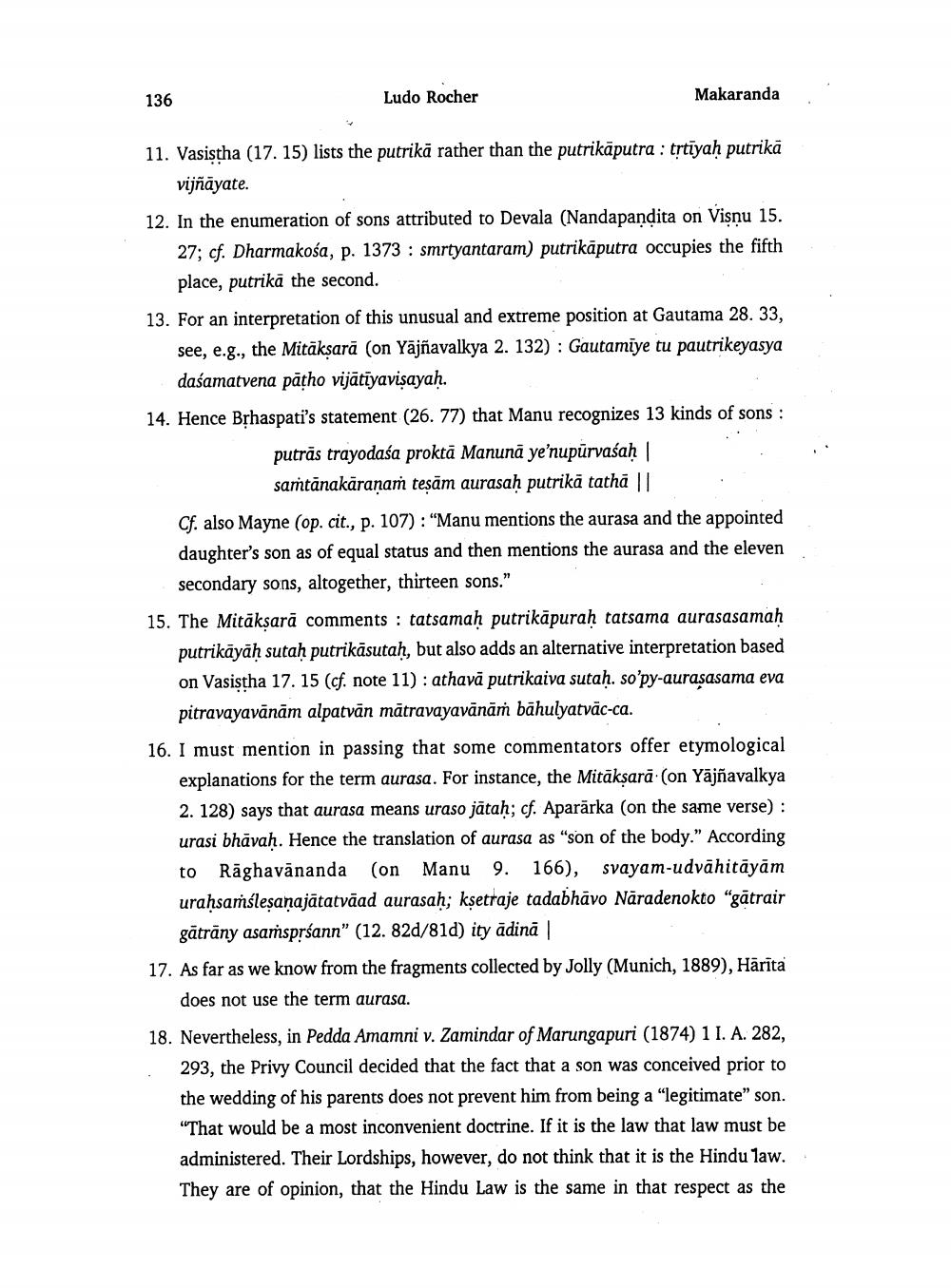________________
136
Ludo Rocher
Makaranda
11. Vasistha (17.15) lists the putrikā rather than the putrikāputra : trtīyah putrikā
vijñāyate. 12. In the enumeration of sons attributed to Devala (Nandapandita on Visnu 15.
27; cf. Dharmakośa, p. 1373 : smrtyantaram) putrikāputra occupies the fifth
place, putrikā the second. 13. For an interpretation of this unusual and extreme position at Gautama 28. 33,
see, e.g., the Mitäksarā (on Yājñavalkya 2. 132) : Gautamiye tu pautrikeyasya
daśamatvena pātho vijātīyavişayaḥ. 14. Hence Brhaspati's statement (26. 77) that Manu recognizes 13 kinds of sons :
putrās trayodaśa proktā Manuna ye’nupūrvaśah |
sastānakāranaṁ tesām aurasah putrikā tatha || Cf. also Mayne (op. cit., p. 107) : "Manu mentions the aurasa and the appointed daughter's son as of equal status and then mentions the aurasa and the eleven
secondary sons, altogether, thirteen sons." 15. The Mitāksarā comments : tatsamah putrikāpurah tatsama aurasasamah
putrikāyāḥ sutah putrikāsutah, but also adds an alternative interpretation based on Vasistha 17. 15 (cf. note 11): athavā putrikaiva sutaḥ. so'py-aurasasama eva
pitravayavānām alpatvān mātravayavānāṁ bāhulyatvāc-ca. 16. I must mention in passing that some commentators offer etymological
explanations for the term aurasa. For instance, the Mitākṣarā (on Yājñavalkya 2. 128) says that aurasa means uraso jātah; cf. Aparārka (on the same verse): urasi bhāvah. Hence the translation of aurasa as “son of the body." According to Rāghavānanda (on Manu 9. 166), svayam-udvāhitāyām uraḥsamślesaņajātatvāad aurasah; ksetraje tadabhāvo Nāradenokto "gātrair
gātrāny asaṁsprśann" (12. 82d/81d) ity adina | 17. As far as we know from the fragments collected by Jolly (Munich, 1889), Hārīta
does not use the term aurasa. 18. Nevertheless, in Pedda Amamni v. Zamindar of Marungapuri (1874) 1 1. A. 282,
293, the Privy Council decided that the fact that a son was conceived prior to the wedding of his parents does not prevent him from being a "legitimate" son. "That would be a most inconvenient doctrine. If it is the law that law must be administered. Their Lordships, however, do not think that it is the Hindu law. They are of opinion, that the Hindu Law is the same in that respect as the




